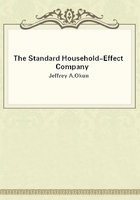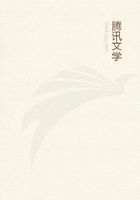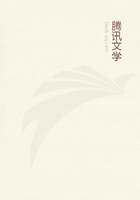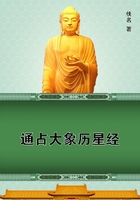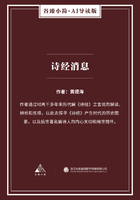there are the reports of the spies on whose information he was arrested, for his too dangerous free-spokenness in matters of religion and morality. The same archives contain forty-eight letters of Casanova to the Inquisitors of State, dating from 1763 to 1782, among the Riferte dei Confidenti, or reports of secret agents; the earliest asking permission to return to Venice, the rest giving information in regard to the immoralities of the city, after his return there; all in the same handwriting as the Memoirs. Further proof could scarcely be needed, but Baschet has done more than prove the authenticity, he has proved the extraordinary veracity, of the Memoirs. F. W. Barthold, in 'Die Geschichtlichen Personlichkeiten in J. Casanova's Memoiren,' 2 vols., 1846, had already examined about a hundred of Casanova's allusions to well known people, showing the perfect exactitude of all but six or seven, and out of these six or seven inexactitudes ascribing only a single one to the author's intention. Baschet and d'Ancona both carry on what Barthold had begun; other investigators, in France, Italy and Germany, have followed them; and two things are now certain, first, that Casanova himself wrote the Memoirs published under his name, though not textually in the precise form in which we have them; and, second, that as their veracity becomes more and more evident as they are confronted with more and more independent witnesses, it is only fair to suppose that they are equally truthful where the facts are such as could only have been known to Casanova himself.
II
For more than two-thirds of a century it has been known that Casanova spent the last fourteen years of his life at Dux, that he wrote his Memoirs there, and that he died there. During all this time people have been discussing the authenticity and the truthfulness of the Memoirs, they have been searching for information about Casanova in various directions, and yet hardly any one has ever taken the trouble, or obtained the permission, to make a careful examination in precisely the one place where information was most likely to be found. The very existence of the manuscripts at Dux was known only to a few, and to most of these only on hearsay; and thus the singular good fortune was reserved for me, on my visit to Count Waldstein in September 1899, to be the first to discover the most interesting things contained in these manuscripts. M. Octave Uzanne, though he had not himself visited Dux, had indeed procured copies of some of the manuscripts, a few of which were published by him in Le Livre, in 1887 and 1889. But with the death of Le Livre in 1889 the 'Casanova inedit' came to an end, and has never, so far as I know, been continued elsewhere. Beyond the publication of these fragments, nothing has been done with the manuscripts at Dux, nor has an account of them ever been given by any one who has been allowed to examine them.
For five years, ever since I had discovered the documents in the Venetian archives, I had wanted to go to Dux; and in 1899, when I was staying with Count Lutzow at Zampach, in Bohemia, I found the way kindly opened for me. Count Waldstein, the present head of the family, with extreme courtesy, put all his manuscripts at my disposal, and invited me to stay with him. Unluckily, he was called away on the morning of the day that I reached Dux. He had left everything ready for me, and I was shown over the castle by a friend of his, Dr. Kittel, whose courtesy I should like also to acknowledge.
After a hurried visit to the castle we started on the long drive to Oberleutensdorf, a smaller Schloss near Komotau, where the Waldstein family was then staying. The air was sharp and bracing; the two Russian horses flew like the wind; I was whirled along in an unfamiliar darkness, through a strange country, black with coal mines, through dark pine woods, where a wild peasantry dwelt in little mining towns. Here and there, a few men and women passed us on the road, in their Sunday finery; then a long space of silence, and we were in the open country, galloping between broad fields; and always in a haze of lovely hills, which I saw more distinctly as we drove back next morning.
The return to Dux was like a triumphal entry, as we dashed through the market-place filled with people come for the Monday market, pots and pans and vegetables strewn in heaps all over the ground, on the rough paving stones, up to the great gateway of the castle, leaving but just room for us to drive through their midst. I had the sensation of an enormous building: all Bohemian castles are big, but this one was like a royal palace. Set there in the midst of the town, after the Bohemian fashion, it opens at the back upon great gardens, as if it were in the midst of the country. I walked through room after room, along corridor after corridor; everywhere there were pictures, everywhere portraits of Wallenstein, and battle-scenes in which he led on his troops. The library, which was formed, or at least arranged, by Casanova, and which remains as he left it, contains some 25,000 volumes, some of them of considerable value; one of the most famous books in Bohemian literature, Skala's History of the Church, exists in manuscript at Dux, and it is from this manuscript that the two published volumes of it were printed. The library forms part of the Museum, which occupies a ground-floor wing of the castle. The first room is an armoury, in which all kinds of arms are arranged, in a decorative way, covering the ceiling and the walls with strange patterns. The second room contains pottery, collected by Casanova's Waldstein on his Eastern travels. The third room is full of curious mechanical toys, and cabinets, and carvings in ivory. Finally, we come to the library, contained in the two innermost rooms. The book-shelves are painted white, and reach to the low-vaulted ceilings, which are whitewashed. At the end of a bookcase, in the corner of one of the windows, hangs a fine engraved portrait of Casanova.


